Regardless of whether you are a photographer, visual planner, or photograph devotee, it’s vital to comprehend the reason for various file designs while dealing with a photograph.
Picture file configurations like JPEG, TIFF, PNG, RAW, and others store computerized information either in an uncompressed or a packed organization. The uncompressed design is lossless, which implies it holds to the picture information even after modifying it. While a packed or lossy configuration photograph will corrupt each time you play out any activity on it, for example, alter, save, and so on.
The greatest configuration for photographs can be one that is uncompressed or lossless. Passing by that rationale, you can say lossless RAW or TIFF designs are awesome. However, there is something else to picture file designs besides this. How about we take a few guides to comprehend.
What is the highest quality picture format?
The assortment of formats given is staggering. Thus, we will give you the critical attributes of what is the best picture designs.
The following are the most famous photo file format:
- Raster Photo Formats
- Vector Files Formats
We shared various sorts of picture arranges explicitly with the goal that you can understand which configuration is required for yourself and you will consequently acknowledge which organization will be ideally suited for you.
Raster Image File Formats
A raster picture is otherwise called the one comprising of a set lattice of specks. They are generally called pixels and every pixel is given unmistakable shading. Mind that raster images are goal subordinate. As such, they are accessible just in one size. If you need to change raster images, get ready to get a hazy outcome. While growing them, the product thinks about encompassing pixels attempting to think about the thing picture information is absent.
Normally, such arrangement is utilized for photographs, digital works of art just as web designs (online media content, standard promotions, and so forth) Photoshop is known as a picture supervisor for creation, planning and altering raster images. You can likewise utilize it to add a few shadows, impacts or surfaces to accessible plans.
Vector Image File Formats
SVG, AI, EPS, and PDF are instances of vector picture file types. Not at all like the static raster picture record designs, where each design shape and shading is attached to a pixel, these formats are more adaptable.
Vector illustrations rather utilize an arrangement of lines and bend on a cartesian plane, scaled in contrast with the complete region, no single pixel. This implies you can interminably extend the first picture resolution with no misfortune in quality or contortion.
As may be obvious, the contrast between quality when amplified 7x is exceptional. Since the SVG works out the positions dependent on a level of the all-out region, and not pixels, there’s no pixelation by any stretch of the imagination.
1. TIFF
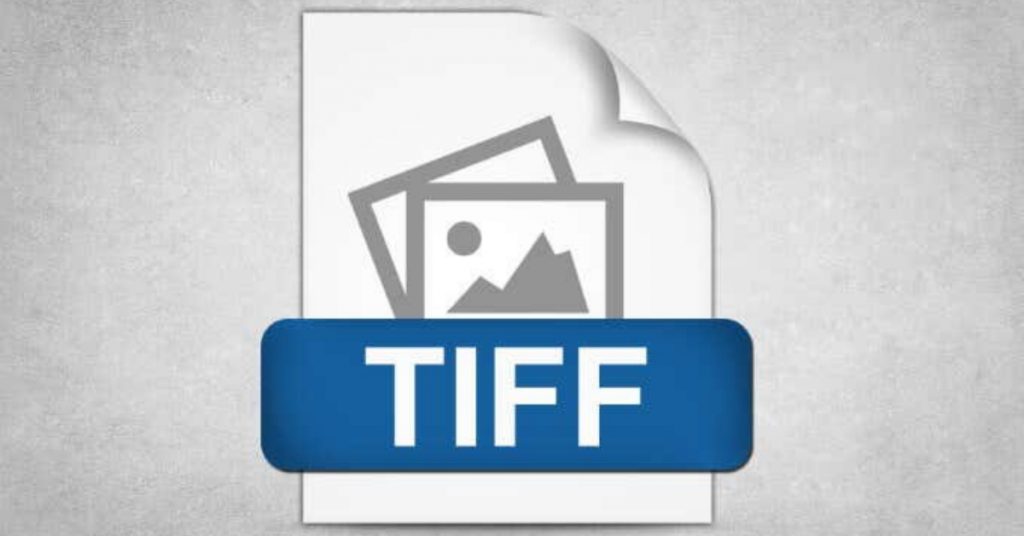
Picture takers and architects habitually use TIFF (Tagged Image File Format). It has no downsides, including the LZW pressure choice. TIFF is the most high-goal picture design accessible for business use. One doesn’t infer that this format is better than others.
TiFF contrasts from different formats in that it isn’t compacted, making it more appropriate for a picture after creation. Moreover, TIFF permits you to produce whatever kind of advanced picture you need. You are permitted to involve it in any photograph altering project to upgrade your photographs.
TIFF images will occupy a ton of room on your gadget, so be ready. Adobe Photoshop is a notable picture proofreader for making, spreading out, and altering raster images, just as applying impacts, shadows, and surfaces to the planning cycle.
If you want great print designs, you should utilize a TIFF. TIFF is the best picture file design, similar to RAW. If you wish to print photos in enormous sizes, this is the arrangement to utilize. It might be ideal on the off chance that you did a quality assessment. TIFF you examine any required papers, fine art, or images utilizing TIFF, you can be sure you’ll acquire the best copy of the first files,
If you’re working with web illustrations, you shouldn’t use a TIFF. TIFF is, upheld by most internet browsers. Its basic role, be that as it may, is printing. To flaunt top-notch photographs on the web, you should utilize PNG or JPEG.
TIFF (Tagged Image File Format) is a lossless picture design. It is generally utilized by proficient photograph originators and realistic editors for after creation altering.
If you need to chip away at photographs, lean toward TIFF over JPEG design, as it won’t bring about quality misfortune in the wake of altering or rehashing ‘Save’ activity.
TIFF generally alludes to the best file design for printing photographs, particularly the huge estimated banners. Yet, similar to some other uncompressed designs, TIFF picture files consume a ton of room on the capacity gadget.
Pros of TIFF:
- High-quality files
- Able to create any kind of digital image
- Large size
- Ideal for commercial purposes
Cons of TIFF:
- Limited browser support
2. JPEG
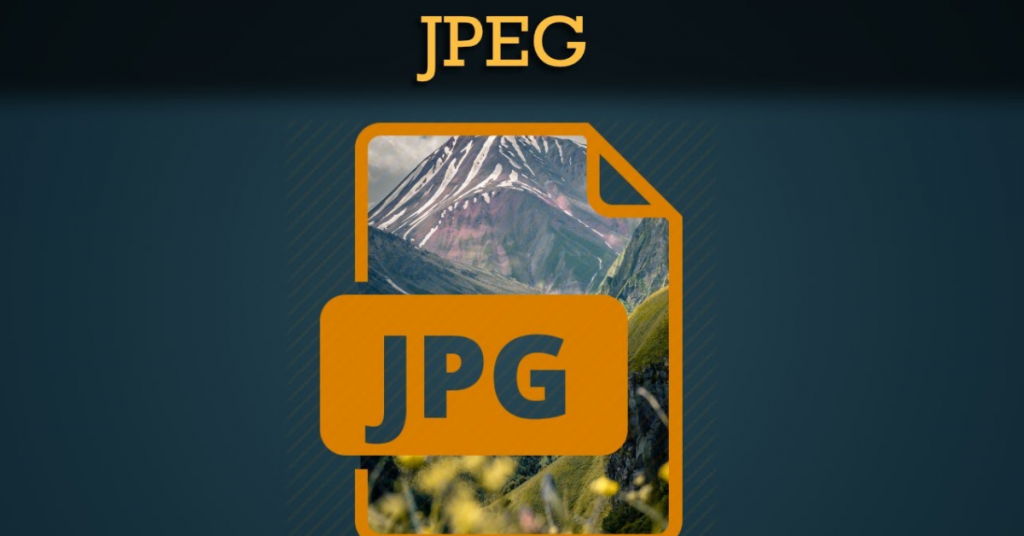
JPEG stands for Joint Photographic Experts Group, and its augmentation is broadly composed as .jpg. This most utilized picture record design is utilized to store photographs from one side of the planet to the other and is by and large a default file design for saving images. Indeed, the majority of the images you observe online will download as .jpg files.
JPEG records come in various quality levels like low, medium and high. Bad quality JPEGs are more compacted than great variants. In this way, if you want a great picture, you’ll have to pick a less packed JPEG choice.
Normally, JPEG images are incredible for sharing via web-based media, using email and on sites. These files are generally little, so they occupy less room on your memory cards and PC stockpiling. Be careful, however, that saving images as JPEGs can think twice about the nature of that picture.
JPEG’s benefit is that it can store 24 pieces for every pixel and show over 16 million tones. In this way, you can utilize it to save high-resolution images in a more modest size and work with fast download or move. This is the explanation JPEG/JPG is viewed as the best picture design for the web.
The arrangement doesn’t occupy a great deal of space on memory cards. It implies you might save countless photographs without agonizing over surpassing any capacity limitations. Remember that modifying JPEG photographs may diminish their quality. If you’re working with web photos and craftsmanship, you ought to use a JPEG. The greatest picture design gives you mind-blowing raster altering and pressure choices.
As a result, you’ll get online images that are not difficult to download. You can hardly wait to get your photos or craftsmanship printed. JPEG images are reasonable for altering and printing since they have excellent and negligible pressure.
It is important to offer customers a short review picture. To send JPEG photographs through email, you decline their size. If you need a straightforward web-based realistic, don’t utilize a JPEG. JPEG is anything but a reasonable decision since it comes up short on a straightforwardness channel and requires a strong shading foundation.
Pros of JPEG:
- Universal browser
- OS support
- Save a lot of space
- An ideal choice for web usage
Cons of JPEG:
- Doesn’t have a transparency channel
3. PNG
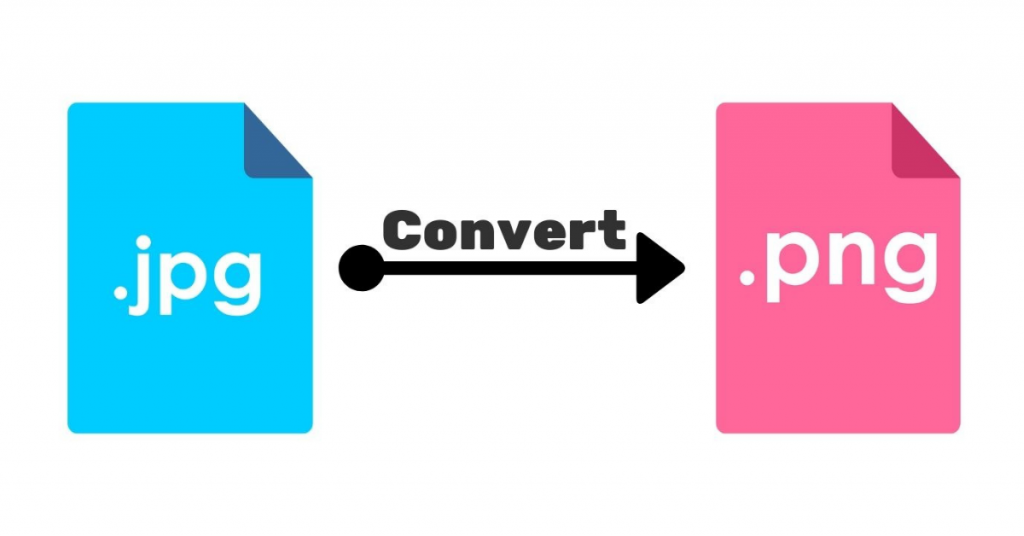
The PNG (Portable Network Graphics) design is a valuable apparatus for picture alteration. It’s the best picture design for making staggering impacts with straightforward foundations or drop shadows.
PNG will allow you to keep both the quality and the data of your photographs. You can involve this plan for logos by and large, Because of its enormous scope. if you want great straightforward web-based images, you should utilize a PNG. Straightforwardness might be turned on or off in a GIF, for instance. Besides, when contrasted with a GIF, the PNG picture design has astounding shading profundities, taking into consideration a more brilliant picture.
You work with representations that have a restricted shading range. Because of its extraordinary capacity to adapt to a restricted shading range, PNG is the main practical choice here. You’ll require a minuscule record. PNG files have tiny sizes. Tones, shapes, and text that are straightforward will seem decent. Along these lines, it is the best picture type for online designs.
If you’re working with fine art or pictures, you shouldn’t pick a PNG. Because of its incredible shading profundity, this configuration can deal with high-goal pictures. In any case, since it is a lossless picture design, the record sizes will be somewhat enormous. You can see PNG pictures on even the greatest PC screens. You can print a photograph saved in this organization, although TIFF or JPEG are better choices (lossy).
PNG was developed more as of late than the others, intended to sidestep conceivable LZW pressure patent issues with GIF (which never really turned into an issue). Also since PNG was more present day, it offers different choices as well (RGB shading modes, 16 pieces, and so forth) One extra component of PNG is straightforwardness for 24 digit RGB pictures.
Regularly PNG files are somewhat more modest than LZW pressure in TIF or GIF (these utilization lossless pressure, of various sorts), however, PNG is somewhat slower to peruse or compose. That patent circumstance has disappeared now, PNG stays magnificent lossless pressure. Less utilized than TIF or JPG, yet PNG is one more great decision for lossless quality work.
Pros of PNG:
- High-quality images
- Visible text
- Make transparent web graphics
- Can handle a maximum of 16 million colours
Cons of PNG:
- Large file sizes
4. GIF
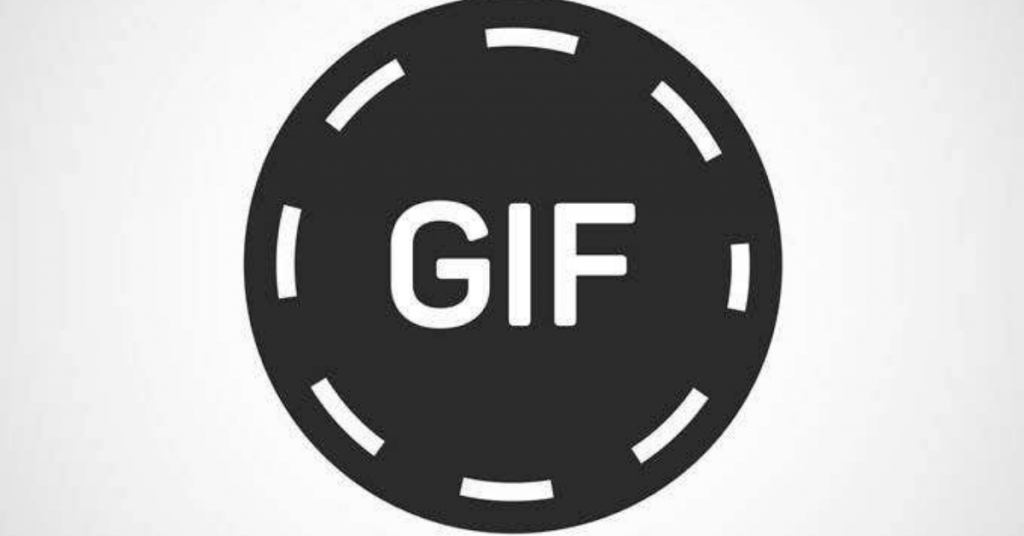
GIF (Graphics Interchange Format) takes after PNG without question if discussing the nature of the pictures. Are you considering what is GIF great for? Most certainly for making the movements.
This organization doesn’t flaunt a wide shading range, so can’t be known as an ideal decision for all photographs. GIF pictures can be straightforward like PNG. Be that as it may, this arrangement doesn’t uphold incomplete straightforwardness so don’t expect any shadow impacts.
You will make web activity. GIF pictures keep all activity outlines just as timing data in just one record. You can utilize any picture manager like PS to make a short movement and product it in a GIF design.
You want straightforwardness. This best picture design likewise has an “alpha channel” which can be straightforward. Go ahead and place your picture on any ideal hued foundation.
You require a little file. The pressure procedures permit contracting pictures in GIF enormously. Hence, this arrangement is ideally suited for making straightforward symbols and web designs.
GIF pictures, as PNG pictures, can be clear. In any case, since this configuration doesn’t permit incomplete straightforwardness, no shadow impacts might be normal. To make a web movement, you ought to utilize a GIF. A solitary GIF picture contains all of the movement edges and timing data. You might make a short liveliness in any picture editorial manager, like Photoshop, and commodity it as a GIF record.
In any case, GIF records are 8-bit, which can show 256 tones. This implies that GIF has a less sharp quality than other raster designs. For examination, JPEG can serve up to 24-bits per pixel, which gives 16,777,216 shading varieties.
Despite its restricted picture quality, many individuals use GIF since it gives a way to convey more intricate visual substance than a static picture. GIF is upheld by all significant programs and working frameworks, just as their standard picture watchers.
This picture design has a more modest shading range, so it’s not appropriate for all photographs. Like PNG, GIF pictures can be straightforward. However, not at all like PNG, GIF doesn’t uphold incomplete straightforwardness, which implies you can’t utilize them to protect shadow impacts in your photographs.
Pros of GIF:
- Low file size
- Animation support
- Supported by all major browsers
- Supported by all major operating systems
Cons of GIF:
- Limited colour range
5. PSD
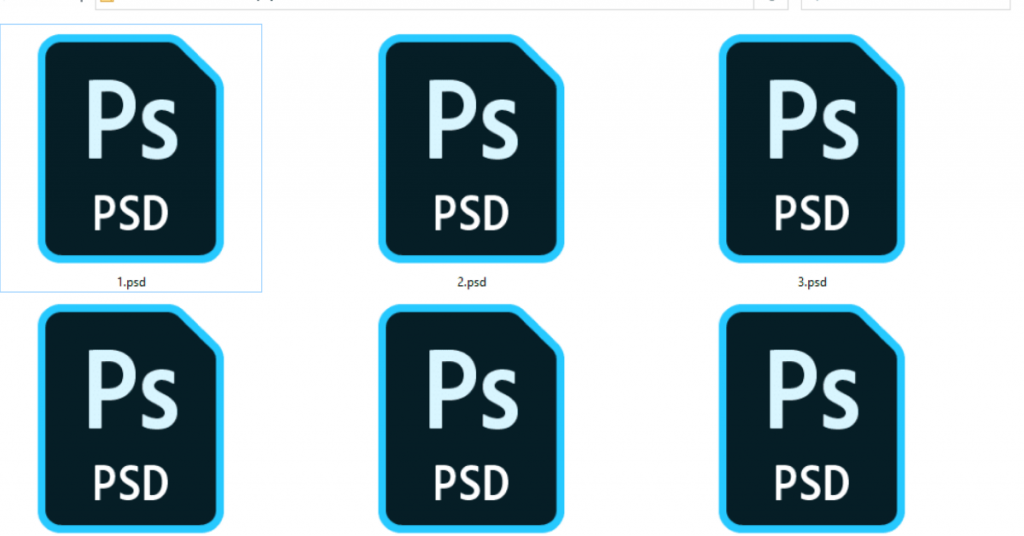
PSD represents Photoshop Document and is a restrictive layered picture design. You can change these Photoshop-made unique plan records with different layers and picture changes. PSDs are most generally used to deliver and alter raster images, yet they may likewise contain vector layers, making them exceptionally flexible for different errands. A PSD record might be saved in different picture file designs, including all the raster designs referenced previously.
If you wish to alter photos, you should utilize a PSD. You might make shading amendments and other altering changes in PSD picture design, for example, adding text or layers. You should adjust craftsmanship for either computerized or print use. This may be a painting, a photo, or a doodle, for instance. Use Photoshop to twofold look at that each shadow, line, and surface is perfectly placed.
For the web, you’ll require computerized images. Make them with Photoshop for email headers, informal communication designs, pennant commercials, and recordings, in addition to other things. You’ll know they’re the right size and streamlined for online use assuming you do it along these lines. At the point when you’re wanting to put a photograph on the web or give a client a see, don’t utilize a PSD. Since the web upholds JPEG, convert the picture to test if the crowd will see it. In this situation, downloading it shouldn’t take excessively long.
Adobe Photoshop exclusive picture design — PSD is utilized by visual fashioners to handle great quality photographs. It utilizes lossless pressure.
When you open any picture file design in Photoshop, the picture supervisor changes it over to PSD design. You can chip away at this PSD file in Photoshop. PSD configuration can keep up with files up to 2 GB in size.
PSD has each one of the characteristics that a picture taker or a visual planner needs — different picture layers, altering of individual layers, channels, capacity to contain great illustrations. It saves a picture of each layer, which allows you to fix a change whenever. PSD keeps up with the best picture, independent of alters, and the number of reserves done on it.
Pros of PSD:
- Fully customizable
- Nice colour editing
- Great image quality
- Filters are reversible
Cons of PSD:
- Large file sizes
6. PDF
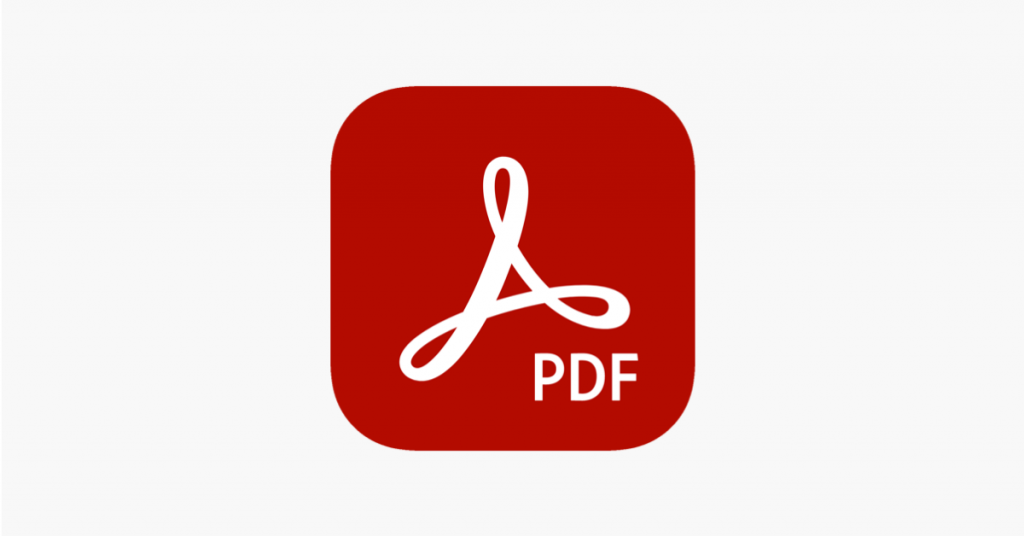
PDF (Portable Document Format) is a notable and advantageous configuration created by the Adobe Systems group to show the arrangement so that on any gadget the record is opened and appears to be identical. The PDF design is utilized to store and send messages and realistic data on the organization, for instance, to move the letterhead to the printing.
It is one of the most incredible picture designs for the web. It turns out incredible for exhibiting purposes, as it is not difficult to show however hard to alter. Such projects as Adobe Photoshop and Illustrator can send out images straightforwardly to PDF with the goal that you might set up your file for printing.
You need to print your picture. PDF will guarantee the best picture design for printing. This is a truly available organization on account of its flexibility. Numerous printers work with it.
You need to modify your outline. PDF isn’t reasonable for picture altering, so you want to involve Photoshop for raster images and Illustrator for vector designs. After you are done altering images, you can involve PDF for the survey.
You likely partner PDF with putting away, saving, and perusing for the most part text-based records. That is reasonable — the record is not too far off in the name after all. Yet, PDF files are founded on the very PostScript language that powers EPS vector picture records and can be utilized to save images and outlines too.
It’s the picture format of decision for putting away delineations, magazine covers, and more for later printing. A PDF record is based on a similar PostScript language as EPS. In this way, PDF is a phenomenal decision for printing. It’s a vector with lossless pressure, permitting you to expand a PDF picture however much you need.
It’s additionally the most ideal choice for intuitive visual reports or infographics since it is indexable and has accessible text. It’s additionally conceivable to remember intelligent components for a PDF, for instance, connections and CTA buttons.
Pros of PDF:
- Can include links
- Add interactive elements
- Supported by all major browsers
- Perfect for displaying files on the web
Cons of PDF:
- Not suitable for photo editing
7. AI

When searching for the best picture design, give your consideration to AI too. This configuration is a vector drawing made in the Adobe Illustrator designs supervisor. It can contain a logo, a postcard, a print, design and some other single-page images.
Computer-based intelligence is a bunch of lines associated with focuses. It doesn’t contain any picture information. Because of the way that AI records are saved in vector portrayal, they can be developed with practically no deficiency of picture quality assuming you utilize the best photograph extension programming.
Computer-based intelligence records can be changed over-dependent on the reason to PDF and EPS files (for evaluating and printing), and JPEG, GIF, PNG, TIFF and PSD (for posting on the web and picture altering).
You are altering the vector. Artificial intelligence is the best picture record type when you want to change the subtleties of your image. It will permit you to do it simply in a few ticks.
You want to print planned victors on one page. Artist will be the best image file design. For making flyers, business cards, logos which are not difficult to join with other raster images. You are arranging to letter for a logo. Artist gives an extraordinary number of content editing devices that will assist you with making an ideal plan.
You will alter a raster image. If you have a raster image in the organization of your file, Illustrator won’t be reasonable for its altering since it has a couple of devices that will not be sufficient. Photoshop will accomplish this work better by changing shading, immersion, brilliance, and so on.
You should print each of the planned champs on one page. The ideal picture file configuration will be Illustrator. You can undoubtedly join Flyers, business cards, and logos with other raster images.
Artist gives a wide scope of content editing capacities to help you in making a faultless logo plan. On the off chance that you will adjust a raster image, don’t utilize an AI. If your file contains a raster image, Illustrator won’t be appropriate for modifying it since it offers a couple of devices, which will be deficient.
Pros of AI:
- Customizable filters
- Shapes are reversible
- Ideal for creating flyers, business cards, logos
- High-quality images
Cons of AI:
- Large file sizes
8. EPS

EPS (Encapsulated PostScript) is a vector design with the substance of two-layered illustrations information as text or an image. These records are frequently utilized by visual planners and picture subject matter experts. EPS is the best picture design with regards to saving realistic information when the picture is expanded.
You are sending a vector picture to your client or architect. Regardless of the eccentricities of the gadget on which this picture will be seen, EPS is the best photograph configuration to guarantee the right resolution. Thus, no compelling reason to stress oversize and quality.
You are working with fine arts or shots. Such images normally need superior grade and ought to be traded to PSD, TIF or JPEG designs. EPS works better with vector images. You will post photographs on the web. Use JPEG, PNG or GIF designs in such cases.
Like SVG, EPS was at first evolved as a text-based record that layouts shapes and lines with code. Be that as it may, it doesn’t plan pixels and shadings like the raster image record designs do. This coding approach brings about EPS being equipped for lossless scaling.
EPS files are additionally broadly utilized for printing purposes. Use outline programming to see EPS records on all OS, since EPS isn’t upheld by any significant internet browsers and can’t be seen utilizing the default image watchers.
EPS is a text-based archive that blueprints shapes and lines with code, rather than planning pixels and tones. Therefore, EPS records additionally support lossless scaling. EPS is an image design that represents Encapsulated PostScript.
Even though it is utilized essentially as a vector design, EPS records can incorporate both vector and raster image information. Ordinarily, an EPS record incorporates a single plan component that can be utilized in a bigger plan.
Pros of EPS:
- Correct resolution
- Lossless scaling
- Include both vector and raster image data
- Can send a vector image to the client
Cons of EPS:
- Not supported by any major browsers
9. SVG

Versatile Vector Graphics (SVG) is a web-accommodating vector record design. Rather than pixel-based raster records like JPEGs, vector files store images utilizing numerical recipes dependent on focuses and lines on a framework.
This implies that vector records like SVG can be fundamentally resized without losing any of their quality, which makes them ideal for logos and complex web-based illustrations.
It’s not simply their resizing capacities that make SVGs tremendously well known with website specialists. SVGs are written in XML code, which means they store any text data as exacting text rather than shapes. This permits web search tools like Google to peruse SVG designs for their catchphrases, which might conceivably help a site climb in search rankings.
You can undoubtedly recognize an SVG file by its .svg expansion. The historical backdrop of the SVG file returns to the last part of the 1990s when the World Wide Web Consortium (W3C) welcomed a proposition from designers for another kind of vector realistic arrangement. Six contending propositions were submitted and informed what in the long run turned into the W3C’s SVG design.
SVGs invested in some opportunity to fill in prominence. There was moderately little help for them until 2017 when individuals started to see the advantages of involving SVGs in current internet browsers. SVG records are currently broadly utilized for 2D site images because most programs and drawing applications for vector files can undoubtedly deal with them.
Versatile Vector Graphics have made some amazing progress lately — yet what are SVGs utilized for practically speaking? Architects regularly use SVGs to show site symbols like buttons, just as organization logos. This record type’s capacity to increase or down while never undermining its quality means they’re great for illustrations that need to show up in numerous spots and in a scope of sizes.
Opening an SVG image with an inherent program on your PC is comparably simple. Double-tap the record name and you’ll get a rundown of projects that will open it — or it’ll naturally open in a viable program.
Pros of SVG:
- Maintain resolution
- Built from many coloured pixels
- Small file sizes
- It helps reading webpages
Cons of SVG:
- Not good for complex drawings
10. WebP

WebP (articulated Weppy) design is the sister task of WebM video holder design—because of the VP8 video codec created by On2 Technologies—delivered by Google. Google gained On2 Technologies on February 19, 2010, then, at that point, delivered WebP in September of that very year.
With 60%-65% of bytes on most pages being images, Google set off to make a free, open-source file design that stores both lossy and lossless pressure designs in top-notch. While keeping up with quality however lessening the size of images, pages load quicker, utilize less data transfer capacity, and save battery power—particularly on versatile—when pages use WebP images.
WebP utilizes prescient pressure to encode an image that takes a look at the qualities in adjoining squares of pixels to foresee the qualities in a square, and afterwards, it just encodes the distinction between them. This permits pixels to be replicated on numerous occasions all through a solitary record, and excess information is taken out from each square. Saving just the information that changes between each square decreases extra room contrasted with PNG and JPEG designs.
Since WebP is created by Google and sovereignty free, it has as of now been coordinated into heaps of utilizations and programming you may as of now have on your PC. Most internet browsers as of now have the required module to deal with the configuration.
WebP is an image design that grew explicitly to give better lossless and lossy pressure of images. Changing from JPEG and PNG to WebP can assist with saving server circle space and critical data transfer capacity, with up to 35% more modest image files for indistinguishable quality.
WebP images are intended for the web and are practically vague from JPEG and PNG, so you might not have even seen that is the thing that you were checking out. You can save a WebP image to your PC the same way you would some other image on the web; right-click the image and click “Save Image As.”
Pros of WebP:
- Better image quality
- Small file size
- Save server disk space
- Includes an alpha channel for transparency
Cons of WebP:
- Not supported by all browsers
FAQs
Which image format has the highest quality?
JPEG is the best photograph saving format for assessing what the best image design is. JPEG images are reasonable for altering and printing since they have excellent and negligible pressure.
Is JPEG or PNG higher quality image files?
PNG is a high-quality image format. JPG images are for the most of lower quality, yet are quick to stack. These variables influence whether you choose to utilize PNG or JPG, as does what the image contains and how it will be utilized.
Is TIFF or PNG a better quality photo file format?
The PNG (Portable Network Graphics) design approaches TIFF in quality and is great for complex images. Dissimilar to JPEG, TIFF involves a lossless pressure calculation to safeguard as much quality in the image. The more detail you need in designs, the better PNG is for the undertaking.
Is JPEG 2000 better than JPEG?
As far as great image quality, JPEG 2000 offers a preferred result over JPEG. This is because it has higher pressure proportions, which implies it can deal with and pack an image up to 200% above a JPEG.
Is PNG good for photos?
PNGs are regularly utilized if the size isn’t an issue and the image is complicated because a PNG record holds more data than a JPG. It’s likewise ideal to involve a PNG for a realistic image.
Is a PNG high resolution?
PNG is a lossless pressure file type, which implies it can endure pressure into more modest sizes without forfeiting image quality. The high resolution of the first is kept up with all through the pressure interaction, and when the image is unloaded and returned to its typical size, the quality is something similar.
What is better SVG or PNG?
SVGs offer lossless pressure — which means they’re compressible to more modest record sizes at no expense for their definition, detail, or quality. PNGs additionally benefit from lossless pressure of 5-20%, which can assist make with increasing their enormous record size. Nonetheless, they’re still prone to be bigger than an SVG.
Final Words on Highest Quality Image Format
Photographic artists can decide to catch photographs in the RAW format to chip away at those photos. Else, more JPEG files can be recorded on the camera SD card. TIFF is the most effective way to get a top-notch print result while JPEG design is not difficult to share on the web, email, or web-based media. PSD file designs are great for altering in different layers. After RAW and TIFF designs, PNG design is awesome for altering.
So photograph quality doesn’t dependably infer enormous record size and high resolution. It ought to have the right configuration as well. The best image design is the one that meets your planned use.














